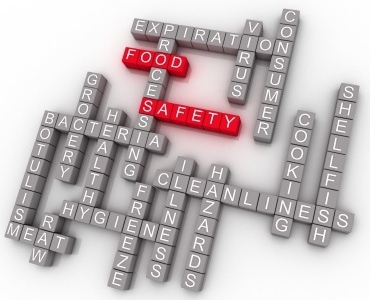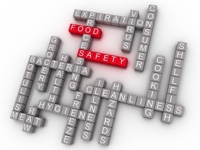
Microbiological testing finds food is safe: report
Food in Canada
Food Safety Bake & Snack Food Beverages Confectionery Fruit & Vegetables Meat &Poultry Canadian Food Inspection Agency food safety microbial hazards recallThe CFIA’s National Microbiological Monitoring Program conducts thousands of tests each year. In 2011-2012 it found 98 per cent of our food was safe

Ottawa, Ont. – More than 98 per cent of food tested by the Canadian Food Inspection Agency (CFIA) was safe to eat according to Health Canada safety guidelines and standards, says a report.
Each year, the CFIA tests a wide variety of food samples as part of its monitoring program. These latest results are from its 2011-2012 annual report.

The CFIA’s National Microbiological Monitoring Program (NMMP) tests for microbial hazards and extraneous materials, such as glass and metal objects.
The testing covers:
• red meat and poultry products;
• shell eggs and egg products;
• dairy products; and
• fresh and processed fruit and vegetable products.
In 2011/2012, NMMP performed 14,307 tests on 5,234 samples of domestic and imported food products.
Specifically, 9,049 tests were performed on 3,678 domestic products and 5,258 tests were performed on 1,556 imported products to verify they were compliant with Canadian standards. Results indicated that domestic products were 99.0% compliant and imported products were 98.0% compliant. Overall, a 98.7% compliance rate for combined domestic and imported products was observed.
The NMMP also collected wash water samples and surface swabs within various food production environments. This type of environmental sampling was performed in domestic establishments to verify the operator systems’ ability to control the presence of pathogens within the processing environment.
During 2011-2012, there were 2,300 tests performed on 1,878 environmental samples which were assessed as 97.5% compliant.
When the NMMP detects potential food safety concerns, they’re assessed to determine the level of risk posed to consumers and to then determine appropriate follow-up action.
These actions may include:
• notifying the producer or importer;
• additional inspections; or
• further directed sampling.
If Health Canada determines that a product poses a health risk to consumers, a product recall is initiated if the product is already in distribution or is removed from the food chain before reaching market.
This and other studies are part of the CFIA’s national microbiological monitoring program, which samples and tests a wide variety of domestic and imported products for high-risk pathogens, including E. coli, Listeria monocytogenes, Salmonella and Shigella.
This information helps the CFIA identify trends, so it can it focus its activities on the areas of greatest risk in the Canadian food market.
For more information, click here.
Image courtesy of David Castillo Dominici at FreeDigitalPhotos.net
Print this page